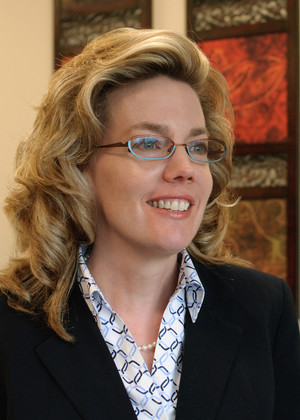Getting to Know: Criminal Justice

College Relations publishes a monthly series of news articles, features and Q&A interviews highlighting various departments on campus in an effort to assist the faculty and staff in gaining an increased awareness about and understanding of each other’s roles and responsibilities.
The April Q&A is with Dr. Lisette Leesch chair of the Justice Studies department.
Q: What are your suggestions for high school or transfer students planning to enroll in the Criminal Justice program?
Check out the program and come to campus. Meet the people you’ll be working with and tour the facilities. Talk to us about your plans, your goals and your strengths and areas needing improvement. Compare faculty experience, facilities and the course offerings. Students will find that the CSC Justice Studies program is unique. Before and after campus visits, we encourage students to visit with professionals in the chosen field and to take advantage of job shadowing opportunities.
Q: What unique lab and travel opportunities do CJ students have?
We believe in blending theory with practice. The Justice Studies faculty members are fans of project-based learning and skill development. The Forensic Lab and the Mock Courtroom facilitate these types of activities. Students learn basic techniques for criminal investigation, evidence gathering, and interrogation. Our students are able to practice courtroom testimony, presentation of evidence in the courtroom, report writing, and the like. We believe exposure to the beliefs and practices of others helps us understand ourselves. The opportunity to compare the development of, and current practices in, the U.S. systems of law enforcement, courts and corrections with other countries is an added feature of the program.
Many of our students also participate in comparative study abroad opportunities. Within several weeks, our students will travel to London, England and Dublin, Ireland to gain new perspectives on various aspects of their chosen profession.
Q: How does the faculty maintain its well-regarded reputation?
Simply put, Justice Studies faculty care. We care about each class session. We care about our students. We care about their academic and personal lives. We care about the futures of our students just as a parent cares about the future of their child. Justice Studies classes are taught by full time faculty with experience in the professions. The faculty are proud of the history, tradition and reputation of the program. Faculty personally know and advise all of the Justice Studies students. Our students know that we have high standards and they rise to meet those standards. Our students know that we value them as individuals and that we value the role they will play as citizens and professionals.
Q: Please describe the variety of career paths graduates take?
Our graduates pursue careers in law enforcement, corrections, probation, parole, law, and the human services. They work in police departments, sheriff’s offices, state patrols, departments of corrections, Health and Human Services departments, law firms, courthouses, prisons, jails and with a variety of local, state and federal agencies. Every year, several apply to graduate programs in law, criminology, forensic sciences, organizational management, public policy or criminal justice administration.
Q: What minors, extracurricular or professional organization do faculty recommend for CJ majors?
CJ students are encouraged to engage in the college community. Our students are active in student government, Campus Activities Board, Residence Life, Cardinal Key, Blue Key, the Social Science Club and many others. The variety of clubs at CSC allows them to pursue their personal interests. Our students volunteer in activities ranging from The Doves Program to support victims of domestic violence to The Big Event, a student-based community service day.
Typically, Criminal Justice students minor in Psychology, History, Business, Writing, Comparative Philosophy, Biology, Chemistry and Interdisciplinary Humanities. Many students choose to double major in Psychology, Social Work, Rangeland Wildlife, History, or the Social Sciences. There is no set formula in choosing your path. Simply put, pursue what interests you and make your education a priority.
Q: What personal traits or characteristics do Criminal Justice majors tend to have?
Like most CSC students, the Justice Studies students have a solid work ethic. Many work multiple jobs while completing the degree requirements. Our students also know that we value integrity, honesty and pride in work done well. Justice Studies students tend to value basic human and individual rights and the concepts of procedure and fairness. Students who can empathize and want to protect and help others, whether those be victims, offenders, or the public, do well in our program.
Category: Campus News, Justice Studies
